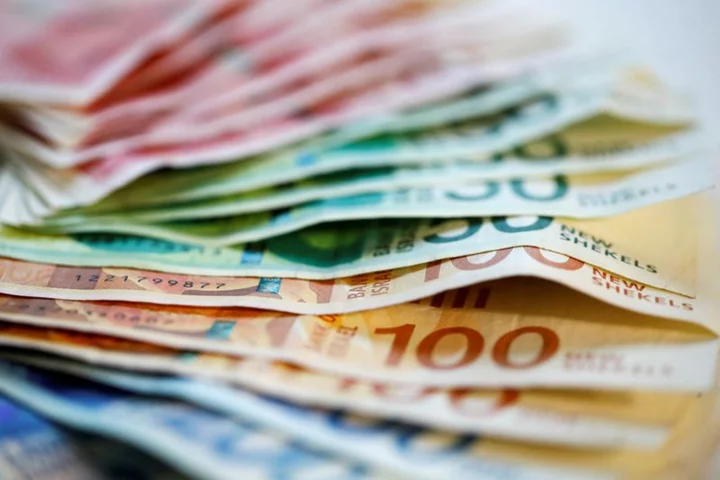By Steven Scheer and Ari Rabinovitch
JERUSALEM The Bank of Israel hiked benchmark interest rates to their highest level since 2006 on Monday, citing high inflation and a tight labour market, and said upcoming data would determine whether it raised them further.
The central bank lifted the key rate for the 10th policy meeting in a row, to 4.75% from 4.5%. All 15 economists polled by Reuters had projected the move, with some believing it may be the last.
Despite the steep tightening cycle and signs of some economic moderation, Israel's annual inflation rate stood at 5% in April, near a 14-year high and well above the government's 1%-3% target range, angering the public but boosting banks' profits.
Deputy Governor Andrew Abir said the central bank was pushed to raise interest rates more than it had hoped in recent months due to the government's judicial overhaul plan that has fuelled political uncertainty, prompted sharp criticism at home and abroad, and raised Israel's risk premium - leading to a weaker shekel and higher inflation.
Without a depreciation of the shekel this year, "inflation would probably be somewhere around 4% rather than 5%," he told Reuters, adding that without the series of rate increases, inflation would have been closer to 7%.
Policymakers expect the inflation rate will stay around 5% in May but were looking for an easing afterwards, Abir said.
"All options are open," Abir said. "You can see a situation where we see inflation starts coming down and we can think that the monetary tightening is mostly done. We can see a situation where the data comes out strong ... and think we need more monetary tightening."
"We have done most of the heavy lifting," he said. "Negotiations over the judicial reform will have an important part in what goes on in the markets and the risk premium of Israel. If we get a compromise that is widely accepted, that will be a good outcome for Israel's economy and will allow us to not have to tighten monetary further."
The central bank's next interest rate decision is on July 10.
"Another rate hike in July appears likely unless we get a downward inflation surprise or a stronger shekel," said Jonathan Katz, chief economist at Leader Capital Markets.
Since the prior rates decision in early April, the shekel weakened 1.5% against the dollar. It was 0.4% lower against the dollar after Monday's decision.
Abir downplayed the notion of intervention to boost the shekel, saying: "It's clear that the interest rate needs to be the first and predominant tool we use."
Israel's economy grew at an annualised 2.5% in the first quarter from the prior three months, and growth in 2023 is expected to ease to 2.5% from 6.5% last year.
(Reporting by Steven Scheer and Ari Rabinovitch; Editing by Toby Chopra, John Stonestreet and Christina Fincher)

